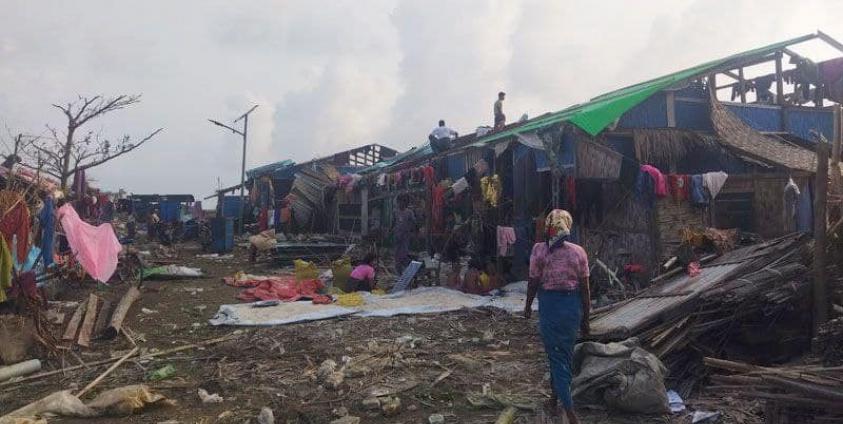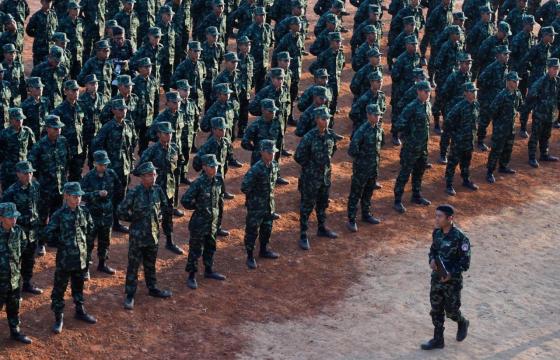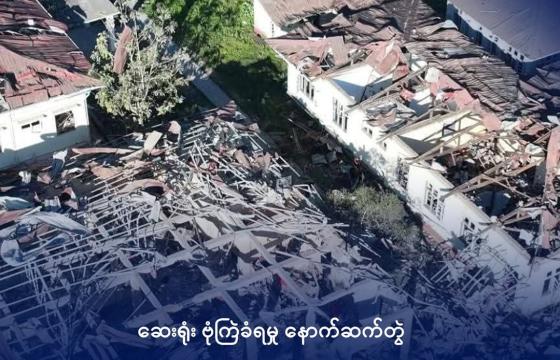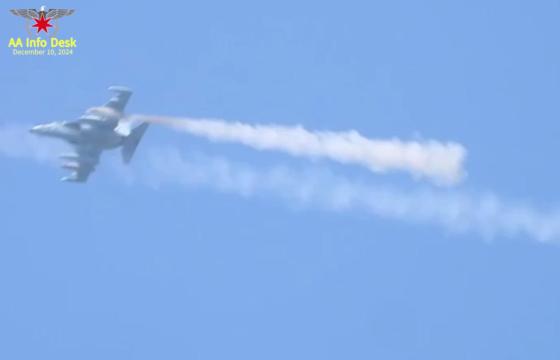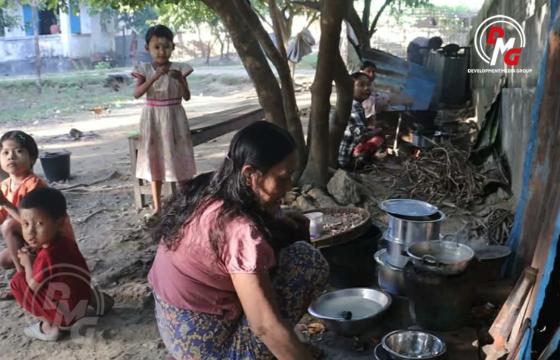The Junta has obstructed aid to some of the worst -affected areas
According to DMG's field investigation, Cyclone "Mocha" claimed the lives of over 110 Muslims residing in Muslim villages and refugee camps in Sittwe Township on May 14.As of May 17, approximately 80 individuals from Muslim villages in Sittwe Township and 34 individuals from the refugee camp have tragically lost their lives.
Due to the storm's swift speed, the waters of the Bay of Bengal surged by about 10 feet, leading to the tragic drowning of the refugees as they fled to nearby villages where they had sought safety, according to family members.
"The water is rising really fast, so we had to run away. There is a fence in front of our village. My mother got caught on the fence and drowned. Our village is completely gone, and now we rely on coconuts to survive," said Mahmud Zaw Hud of the Bar Sar Yar Muslim refugee camp.
Mahmud Saw Lain, a family member of another deceased, said, "We tragically lost our brother and sister-in-law while they were trying to escape from the flood. Now their bodies have been buried. There are no houses left standing." Bar Sar Yar Muslim Village is situated on the shores of the Bay of Bengal.
Many Muslims in the vicinity of Sittwe who lost their lives were those who were unable to escape the storm and stayed in their homes, as well as residents living along the sea shores.
Group administrator U San Mya Kyaw said, "The number of casualties may be even higher, as there are still people who haven't been able to locate their family members. The majority of those who lost their lives lived near the shoreline. Additionally, many of the individuals who remained behind to protect their homes also perished."
In Rakhine State, Cyclone "Mocha" caused the deaths of hundreds of local people, and resulted in the destruction of numerous homes and buildings, and left many individuals missing. The survivors of the storm are in urgent need of food and healthcare.
The storm-affected areas are currently facing a lack of telephone, internet, and electricity services. Moreover, the transportation difficulties are making it challenging to provide the necessary aid to those areas.
One of the main areas of concern is the western Rakhine state, where hundreds of thousands of members of the mainly-Muslim Rohingya minority – not recognized by the Junta and still persecuted ,have been living in particularly precarious settlements for internally displaced persons for years.
The Government of National Unity (NUG) commented, “Unrestricted access to affected communities is required to deliver immediate lifesaving humanitarian assistance. The Junta’s restriction on traveling and access to effected areas is a barbaric act,” they said on social media.
Myanmar’s military junta has continued to block access of international humanitarian aid to areas hit by cyclone Mocha, making it difficult to ascertain the exact number of victims and the situation on the ground..
The regional spokesperson of the United Nations Office for the Coordination of Humanitarian Affairs, Pierre Peron, confirmed that the authorities continued to maintain restrictions on the entry of international aid.
A Muslim woman from Baw Du Pha refugee camp (2) said, "Everything got destroyed by the cyclone, and now we're struggling without food. We don't have money or rice. We urgently need rice and doctors."
In the aftermath of the storm, a total of around 80 casualties were reported from various Muslim villages in around Sittwe : 23 from Bay Dar, 20 from Dar Pai, 10 from Rubber Farm, 10 from Thel Chaung, 6 from Ohntaw Gyi, 1 from Ohntaw Chey, 5 from Ohntaw, and 4 from Baw Du Pha.
According to family members and villagers, the Muslim refugee camps have also suffered significant losses. Because access and aid to western areas of Rakhine has been blocked by the military junta, it is possible that hundreds more perished in the cyclone and not yet accounted for in Rakhine.
Myanmar’s military junta has continued to block access of international humanitarian aid to areas hit by cyclone Mocha making it difficult to know how many Rohingya refugees died..
The regional spokesperson of the United Nations Office for the Coordination of Humanitarian Affairs, Pierre Peron, confirmed that the authorities continued to maintain restrictions on the entry of international aid..
The International Nonprofit Doctors Without Borders (MSF) commented that although geographical and security difficulties already existed before the cyclone, access to the camps for displaced people has worsened after the natural disaster


